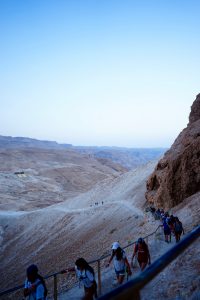
Throughout Freshman Parent’s weekend, I had the opportunity to delve deeper into the topic of the Israeli-Palestinian conflict, thanks to Professor Kenneth W. Stein. As an expert writer, teacher, and lecturer in the history and politics of the Middle Eastern Studies since 1977, particularly with respect to Israel and Arab-Israeli relations, Stein conveyed major insight into the Israeli-Palestinian Conflict, located in room 305 of White Hall. He is currently the President of the Center for Israel Education (CIE); Under Stein’s initiative, Emory has established the Middle East Research Program and the Emory Institute for the Study of Modern Israel – ISMI.
Some background of the matter is that the conflict between Palestinian Arabs and Israeli Jews is a modern phenomenon, dating back to the end of the 19th century. The conflict began as a struggle over land; From the end of World War I until 1948, the area that both groups claimed was known as Palestine. After the Arab-Israeli War of 1947-48, Palestine was divided into the areas we see now: Israel,
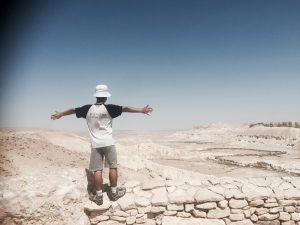
The Gaza Strip, and the West Bank. Jewish Israelis, whose ancestors began migrating to the area in the 1880s, say their claim to the land is based on a promise from God, as well as for the need of a safe haven after widespread hostility toward the Jewish people, also known as anti-Semitism. In contrast, the Palestinian Arabs believe they are the rightful inhabitants of the land because their ancestors have lived there for hundreds of years prior.
The Gaza Strip is a rectangular piece of land along the Mediterranean coast between Israel and Egypt. The majority of its approximate 1.4 million residents are Palestinian refugees, many of whom have been living in refugee camps for decades. 80 percent were estimated to be living in poverty in mid-2007.

Israel is a small area—approximately 10,000 square miles. The competing claims to the territory are not reconcilable if one group exercises exclusive political control over all of it. Jewish claims to this land are based on biblical promises to Abraham and his descendants, on the fact that the land was the historical site of the ancient Jewish kingdoms of Israel and Judea, and on Jews’ need for a haven from European anti-Semitism. Palestinian Arab claims to the land are based on their continuous residence in the country for hundreds of years and the fact that they represented the demographic majority until 1948. They reject the notion that a biblical-era kingdom constitutes the basis for a valid modern claim. They do not believe that they should forfeit their land to compensate Jews for Europe’s crimes against them.
From Professor Stein’s discussion, I learned that Jewish educators shy away from teaching subjects that they deem too political, arguing that politics does not belong in the classroom. Educators of Judaism tend to begin with the premise that Jewish students must learn to solely support Israel and defend its government.
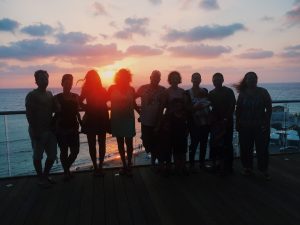
As a niece of my Zionist Aunt and Uncle living in Israel, this concerns me greatly. I tend to question why many Jewish Institutions encourage critical thinking when teaching ancient Jewish texts –challenging students to consider multiple voices, give expression to minority viewpoints and ask difficult questions — but when teaching about the Israeli-Palestinian Conflict, they avoid this approach.
Educators believe that their role is delineated on teaching young Jews that Israel is the core to their Jewish identity.
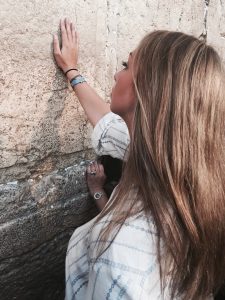
The Israeli-Palestinian conflict is central to Jewish life. It’s as important to Jewish identity as prayer and the weekly Torah portion. While American Jews can certainly live a prosperous lifestyle without ever thinking about Israel, it remains the epicenter of all Jewish politics. Involving middle and high school students in the debates around the conflict allows them to grapple with Jewish history, explore the many variations of Zionism, and comprehend religious and political differences within the Jewish community.
Jews must acknowledge the Palestinian perspectives, primarily because we can’t wish Palestinians away nor pretend they don’t exist. We have a moral obligation to listen carefully to their stories and effectively comprehend what they have endured as a result of war and displacement. If we want a peaceful resolution to the Israeli-Palestinian conflict, we must engage directly with Palestinians — not by criticizing or attacking them, but by genuinely trying to understand their experiences, starting in the classroom.
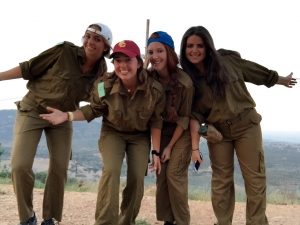
The children and teenagers within our Jewish communities are bright, creative and eager to learn. They are capable of discussing divergent viewpoints and can wrestle with difficult issues; They can understand that Israel is a modern nation-state embroiled in a complicated political situation wherein nobody can become neglected. In order to ensure proper learning, young children can sample Israeli and Palestinian foods, attend cultural events, and learn songs in Hebrew and Arabic. Older students can read novels, have structured debates and mock trials, write poems from multiple perspectives and conduct interviews with family members, activists, and scholars.
Many individuals within society want to avoid fruitless debate about the conflict, but within a classroom setting can employ creative teaching techniques that allow students to genuinely engage with the material. This type of learning will help students prosper, encourage them to develop their own unique ideas about Israel and the Israeli-Palestinian conflict, and foster a sense of respect and understanding for others. These are the kinds of attributes that the next generation of Jewish citizens desperately need.
This topic is one that has remained very close to my heart,
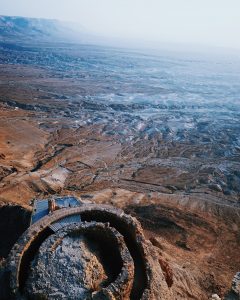
as my Aunt, Uncle, first cousins, and even their children have suffered and fought through the many wars in which plague israelites every-so-often. On my second trip to Israel last summer, I was immediately captivated by my special country, one that I admired tremendously and soon grew to love over the five weeks I had spent there. Over that summer, like so many others who are drawn to this extraordinary place, I had climbed Masada, swam in the Dead Sea, tasted extravagant foods, met a unique range of individuals, and had driven from one Biblical city onto the next. I had walked through exhibitions of the hell of the Holocaust at Yad Vashem, stood on the Golan Heights, spent nights star-gazing in the Negev, and shot an M-16 rifle at one of Israel’s very own Military training bases.
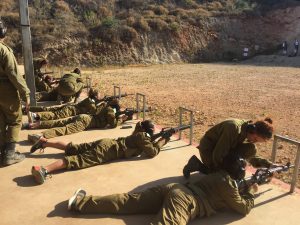
Out of those experiences came a steadfast commitment to Israel’s security that has never wavered for a single minute in my 18 years of life. I have also often visited West Bank communities, where I met Palestinians struggling for basic freedom and dignity amidst the occupation and passed by military checkpoints that can make even the most routine daily trips to work or school mundane.
It is held within the vitality of Israel to keep open the possibility of peace, by consistently educating bright individuals, so that we not lose hope in the two-state solution, no matter how difficult it may seem [because there really is no viable alternative]. The plight of many Palestinian refugees is heartbreaking, and many, especially Professor Stein, feel this must be addressed.

As part of commencing a comprehensive resolution, their suffering must be acknowledged, and there will be a need to have options and assistance in locating permanent homes. The international community can provide significant support and assistance, especially starting by educating young students through Jewish organizations and institutions.
If you would like to learn more about Professor Kenneth Stein:
- http://history.emory.edu/home/people/faculty/stein-kenneth.html
- https://www.israelinstitute.org/about/leadership/dr-kenneth-w-stein
- http://www.israelemb.org/washington/Speakers-Guide/Society-and-Politics/Pages/Dr.-Kenneth-W.-Stein.aspx
- Search for Ken Stein on the Course Atlas for his upcoming lectures
